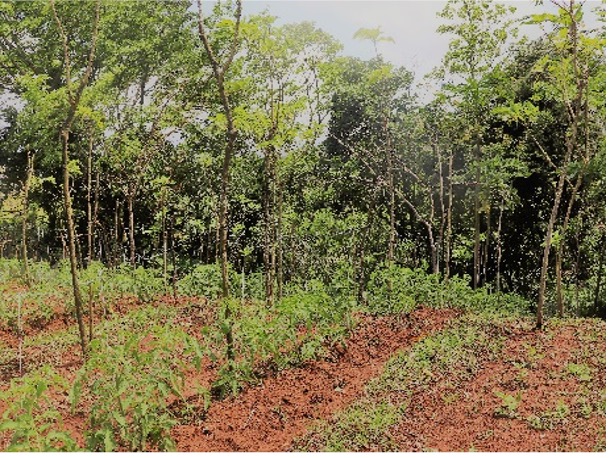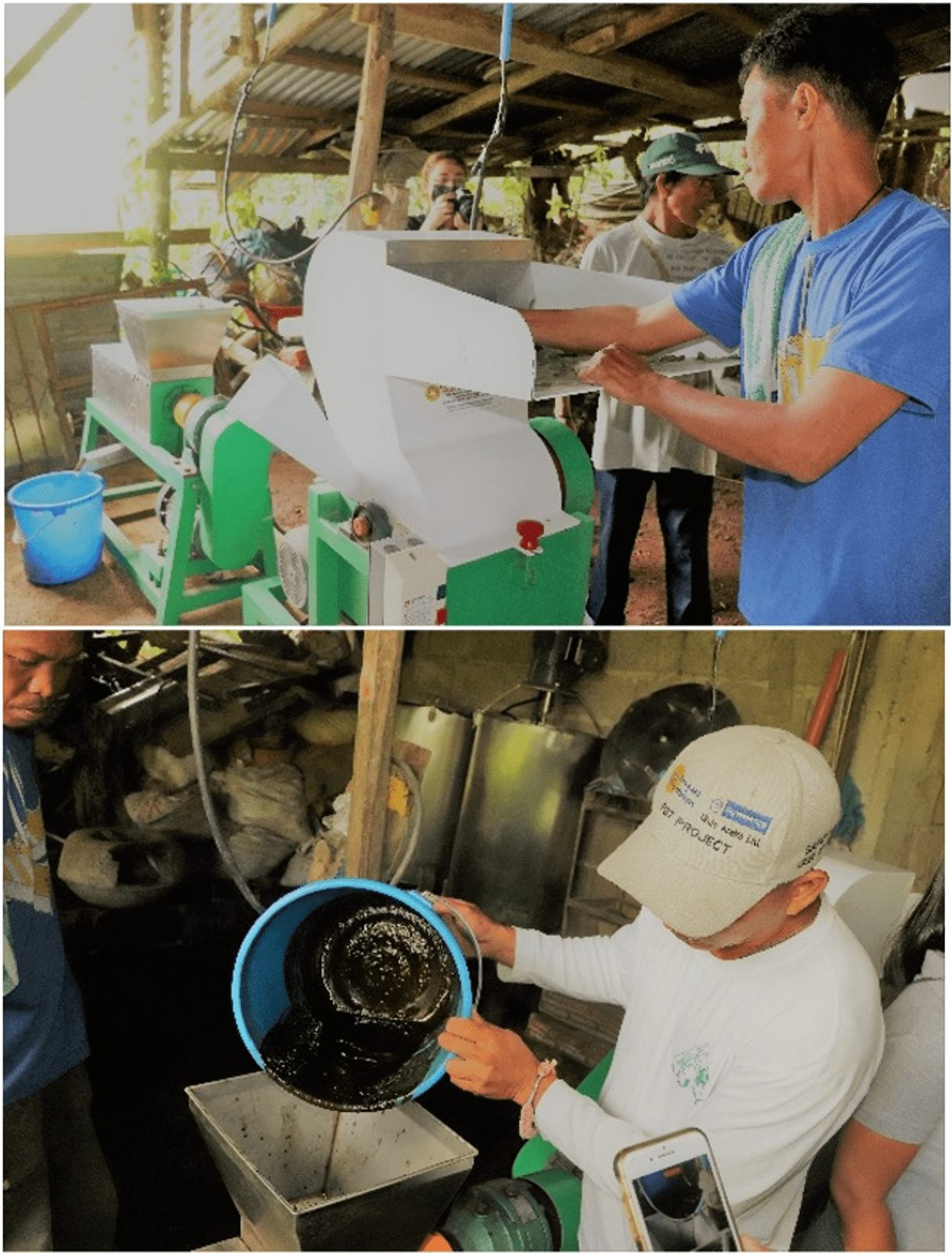
Farmers from Liliw Upland Farmers’ Multi-Purpose Cooperative (LUFAMCO) of Brgy. Luquin in Liliw, Laguna benefit from the ongoing Agroforestry Support Program for Enhancing Resiliency of Community-Based Forest Management Areas (ASPIRE-CBFM) program funded by the Philippine Council for Agriculture, Aquatic, and Natural Resources Research and Development of the Department of Science and Technology (DOST-PCAARRD).
The two LUFAMCO agroforestry model farms follow a vegetable-based agroforestry system, which practice intercropping. This system involves growing several vegetable and perennial crops during the same season. The model farms include a combination of vegetable crops such as sweetpotato, tomato, cabbage, and green beans. The Program team introduced chili (Capsicum annuum) to the farmers as an additional crop.
According to farmers, Enrico Aversu, Henry Brosas, and Eliser Moredo, the equipment purchased by the Program (i.e. multi-purpose shredder, fermentation drums, aerator/brewer, and juice extractor) used for organic fertilizer production allow them to save roughly half of their farm inputs per cropping cycle.
They are now able to produce organic fertilizers such as Fermented Fruit Juice (FFJ), Fish Amino Acid (FAA), Fermented Plant Juice (FPJ), Bio Organic Fertilizer (BOF), and Indigenous Microorganism (IMO).

In addition to the tall grasses, bamboos, and shrubs that are present in the area, lipote and pili seedlings were also provided by the program to serve as windbreak and farm boundaries. 'Kakawate' was also used as live trellis and contour hedgerow for soil and water conservation in the model farms.
Automated Rain Gauges (ARG) were also installed in erosion plots identified by the Department of Environment and Natural Resources-Ecosystems Research and Development Bureau (DENR-ERDB) in the CBFM areas to enhance the capacities of Municipal Disaster Risk Reduction Management Offices (MDRRMO). ARG was developed to gather and record the amount of rainfall over a set of time and automatically send the data to a central base station on a predetermined time interval. This way, they would be able to have a real-time measurement of amount of rainfall with a faster and wider coverage.
ASPIRE-CBFM program is a technology transfer initiative that aims to build resilient and sustainable CBFM communities through the establishment of appropriate agroforestry systems, livelihood, and S&T-based interventions. This program is being implemented by the University of the Philippines Los Baños (UPLB), DENR-ERDB, and DOST-CALABARZON.
